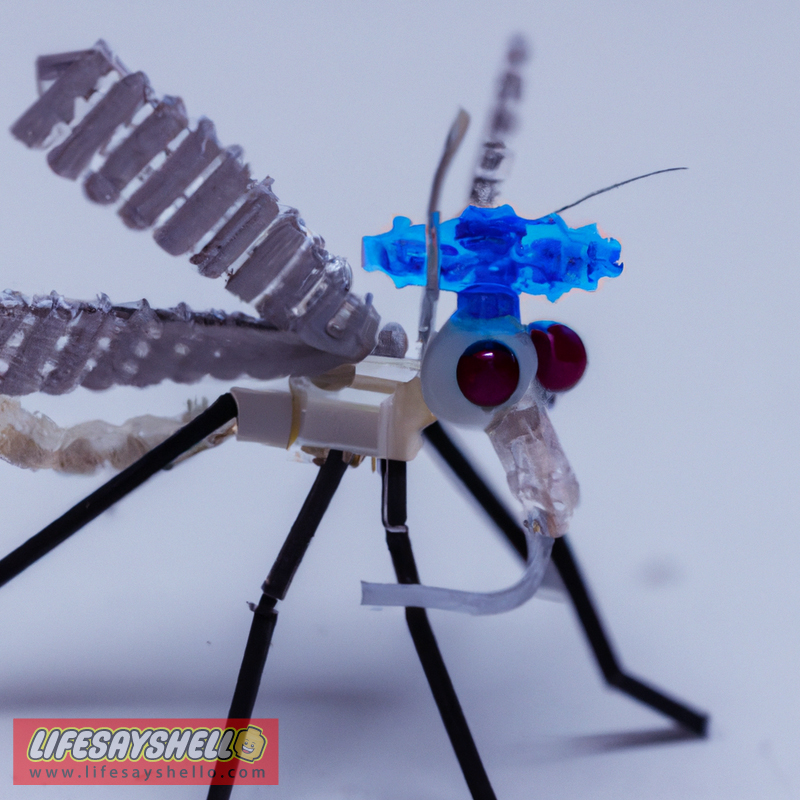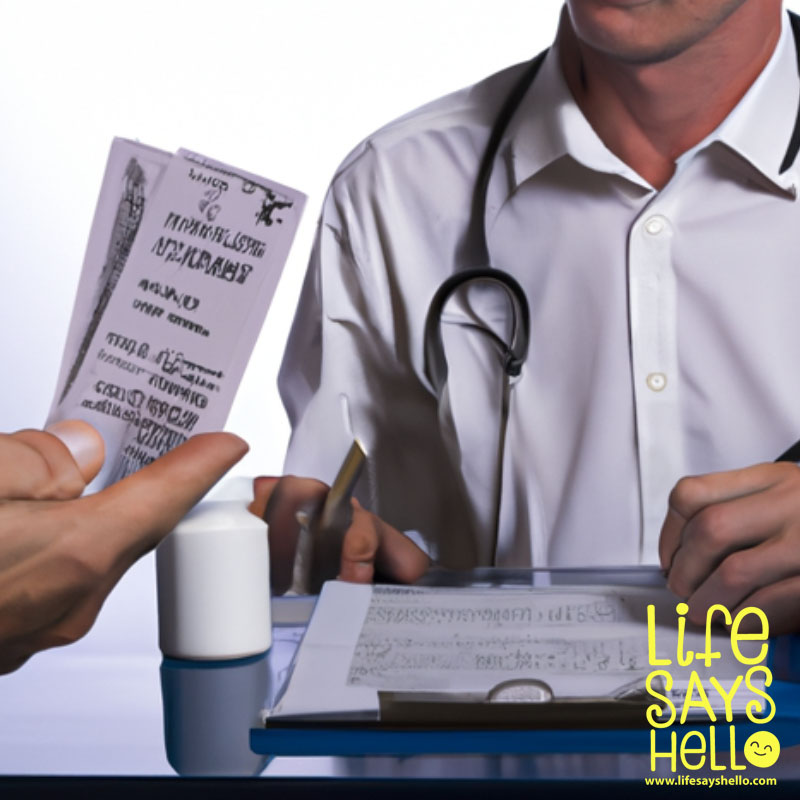Symptoms of Malaria Uncovered: A Comprehensive Guide for the New Generation

Malaria might sound like a mysterious and distant illness, but it remains a real threat for millions globally; so, let's dive into this comprehensive guide on understanding the symptoms of malaria, tailored for the new generation's curious minds and adventurous spirits.
Introduction
Hey there, welcome to our deep dive into the world of malaria! Are you ready to become an expert on its symptoms and how to tackle them? Don't worry, this guide is crafted with you in mind, using casual English that’s serious enough to keep you on track but relaxed enough to maintain your interest.
Malaria is a potent and persistent disease that affects millions every year, so recognizing its signs and symptoms is crucial for everyone, especially if you've got a serious case of wanderlust.
Understanding Malaria
Before we dive into the symptoms of malaria, let's take a brief look at the disease itself. Malaria is a life-threatening illness caused by parasites called Plasmodium. These microscopic troublemakers are gifted to us by the bite of an infected female Anopheles mosquito.
While it mainly affects regions like Sub-Saharan Africa, Asia, and Latin America, it's important for all globe-trotters to be aware of malaria and its symptoms, no matter your passport's origin.
Symptoms of Malaria: One by One
Alright, now that we have an idea of what malaria is, let's jump into the symptoms. Remember, these nasty experiences can range from mild to hard-to-ignore, so we’ll break them down for you.
Get ready to increase your knowledge of malaria symptoms, whether you’re planning a trip soon or you’re the go-to friend for health advice!
Fever: The main character of our story, fever is often the first sign of malaria. Just when you thought that a high body temperature and feeling like you've been hit by a truck are not bad enough, there's more.
Chills: With malaria, feeling cold and shivering is all part of the package.
Headache: To add to the fun, persistent headaches are also a crowd favorite among the symptoms of malaria.
Nausea and Vomiting: The combo of feeling sick to your stomach and actually throwing up is never a highlight, but they are possible symptoms of malaria.
Diarrhea: Time to dive into the not-so-pleasant world of malaria, as diarrhea joins the symptom squad.
Abdominal Pain: Add some stomach cramps and discomfort to the mix, and you've got yourself another symptom of malaria.
Muscle and Joint Pain: Okay, let's round it out with some achy muscles and joints, completing our not-so-fabulous list of malaria symptoms.
As frustrating as these symptoms are, it's important to remember that they can occur in cycles. Victims of malaria might experience fever cycles for six to 24 hours, followed by chills, shaking, and sweating, both during the day and night. So, yes, it's not only annoying but also confusing.
Mild and Severe Symptoms: Know the Difference
Knowing the difference between mild and severe malaria symptoms might be essential for that upcoming backpacking trip.
Following the first symptoms like fever, chills, and headache, complications may arise if the infection progresses. These severe complications can include:
- Anemia (low red blood cell count)
- Cerebral Malaria (swelling of the brain)
- Breathing difficulties and pneumonia
- Organ failure (kidneys, liver, spleen)
- Low blood sugar
Seeking medical help straight away can save lives! So, always be alert and encourage your friends to do the same.
The Danger of Ignoring Symptoms: Play It Safe
Let's chat about the risks. Malaria isn't the type of illness to brush off or hope it goes away on its own. If you think you might have been exposed to malaria, get in touch with a healthcare professional as soon as possible.
Here's the thing: malaria's symptoms often resemble those of the flu or another common illness. This similarity makes it easy to misdiagnose or mistake it for something less severe.
The bottom line is this: ignoring or neglecting malaria symptoms could be a game with significant risks, and nobody wants to play that. So, nip it in the bud and see a doctor if you suspect something's up.
Prevention and Treatment: Keep Malaria at Bay
Let's break down some tips for preventing malaria, especially for those of you who love exploring exotic places where the disease is prevalent. Here's what you can do:
- Use insect repellent, particularly those containing DEET.
- Sleep under mosquito nets.
- Wear long sleeves and pants.
- Take anti-malaria medications as prescribed and follow specific guidelines according to your travel destination.
Alright, now that you've got a prevention plan: what's the deal with malaria treatment? Malaria is considered curable if diagnosed and treated promptly and correctly.
This usually involves antimalarial medications, determined by factors like the parasite type, severity of the infection, and the patient's overall health. Treatment is nothing to put off, so don't let the excitement of adventure get in the way of your well-being.
When and Where to Seek Help
So let's say you've recently come back from a thrilling journey through a country where malaria is prevalent. Or maybe you've just caught a fever after a long night with mosquitoes as unwanted guests. Either way, the question now is: What do you do next?
The answer is quite simple. Seek medical help if you're experiencing potential malaria symptoms, whether from your personal doctor or a local health clinic. And do it fast! Don't wait around for the symptoms to clear up on their own or chalk them up to a common cold or the flu.
What to Expect
Meeting a doctor about possible malaria might sound daunting, but there's not much to worry about. They'll likely ask you about your symptoms and recent travel history, potentially followed up with a simple blood test to identify if malaria-causing parasites are at work.
If you're tested positive, your doctor will decide on a treatment plan catered to you, specially designed based on the type of malaria, your overall health condition, and whether you're pregnant.
The treatment usually consists of prescription antimalarial medications. While they cannot undo any significant damage caused by the infection, these medications can help manage symptoms and prevent the condition from becoming severe.
The Future of Malaria Treatment and Prevention
Now, for a quick glimpse into the future. As long as mosquitoes keep biting, and malaria remains a global challenge, scientists will continue refining malaria treatment and prevention. Strategies like developing more effective drugs, vaccines, and mosquito control methods are all on the table.
Additionally, malaria research is focusing on genetic modifications. By altering the genes of mosquitoes, scientists hope to reduce, or even eliminate, their ability to transmit the disease.
So, yes, the future looks promising. But until we reach that malaria-free world, we need to stay informed, stay cautious, and react promptly to potential symptoms.
Importance of Seeking Medical Attention
There's no easy way out of it — if you're experiencing any symptoms of malaria, seeking medical attention is an absolute must-do.
Even if you have a hunch or are concerned about what's happening, being proactive is always a solid strategy. With a disease like malaria, timing is key, so don't wait.
Last Thoughts: Knowledge is Power
Whew! Congratulations! You've made it to the end of this intense yet enlightening journey through the world of malaria. You now know more than most people about the symptoms of this disease, and that's a powerful tool in your health arsenal.
Remember, knowledge is power — especially when it comes to your health and wellness. So, keep this guide handy, share it with your buddies, and stay vigilant. The more aware you are of the risks and symptoms of diseases like malaria, the better you can protect yourself and those around you.
Here's to your ongoing health, and to the adventures that still await! Go ahead, quench that wanderlust thirst. But remember to play it smart and safe. To round off with a quote from the wise Ferris Bueller, "Life moves pretty fast. If you don't stop and look around once in a while, you could miss it."
So, take your time, enjoy the ride, and keep this guide close at hand - it's here to back you up in your quest for a safe, healthy, and adventurous lifestyle!




Comments